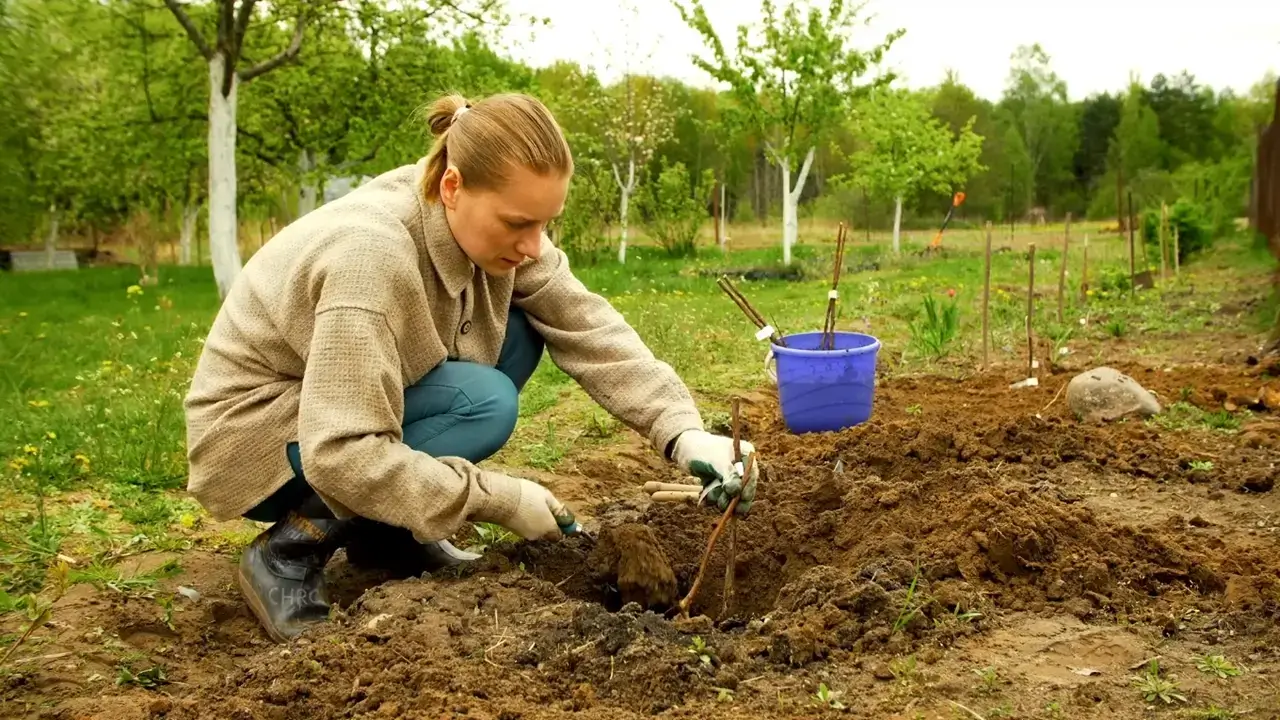You love your daughter, listen to her and even take action on her mistakes. But amidst all this, don’t you ignore your son’s words?

Ayush studies in eighth grade. He often complains to his mother, “Mumma, girls tease me in school. I don’t want to go to school.” Shreya ignores it, considering it to be a small matter between children.
Sometimes she says angrily, “You are a boy; why are you afraid of girls?”
One day, Shreya read in the newspaper the news of a boy committing suicide because he was fed up with being teased by the girls at school.
She immediately went to school and told the teachers. She talked about taking this matter seriously. However, Shreya does not do this at all with her daughter Pahal.

When her daughter complains about something, she listens carefully. She goes to school and complains to the teacher.

She tells her daughter She also makes him aware of the wrong behaviour, but she did not pay much attention to Ayush’s bullying, thus unknowingly making Ayush a victim of discrimination by his parents.
Listen to the Boys Too.
Although the time of pampering the son and abusing the daughter is not far behind, it is also true that nowadays, as much importance is given to everything that is said of girls, it is not given to that of boys. As a result, teenagers start feeling insecure, due to which inferiority complexes start developing in them.

Let’s delve into this topic.
In many societies, there has been a historical bias toward favoring sons over daughters. This bias can manifest in various ways, including differential treatment, expectations, and opportunities. However, it’s essential to recognize that progress has been made in challenging these stereotypes and promoting gender equality.
Here are some key points related to the statement:
Pampering Sons and Abusing Daughters:
- Historically, sons were often favored due to cultural norms, inheritance laws, and the desire for male heirs. This preference sometimes led to pampering sons while neglecting daughters.
- On the other hand, daughters were sometimes subjected to harsh treatment, including emotional, verbal, or physical abuse. This mistreatment perpetuated harmful gender stereotypes.
Changing Perspectives:
- Over time, societal attitudes have evolved. Efforts to promote gender equality have led to increased awareness about the importance of treating all children fairly, regardless of their gender.
- Laws and policies have been enacted to protect the rights of both boys and girls, emphasizing equal opportunities and access to education, healthcare, and other resources.
Importance Given to Girls:
- In recent years, there has been a positive shift in recognizing the value of girls and empowering them. Campaigns, education programs, and advocacy have highlighted the potential of girls and their contributions to society.
- Girls’ education, leadership, and participation in various fields (such as science, technology, and sports) are now actively promoted.
Neglecting Boys’ Emotional Needs:
- While progress has been made in empowering girls, it’s essential not to overlook boys’ emotional well-being.
- Boys may face societal pressure to conform to traditional masculine norms, which can discourage them from expressing vulnerability or seeking emotional support.
- Neglecting boys’ emotional needs can lead to feelings of insecurity and contribute to an inferiority complex.
Balancing Support:
- To address this issue, it’s crucial to strike a balance. We should listen to both boys and girls, acknowledging their feelings, aspirations, and challenges.
- Encouraging open communication and emotional expression benefits everyone. Boys should feel comfortable discussing their fears, doubts, and insecurities without judgment.
Promoting Healthy Self-Esteem:
- Parents, educators, and society at large play a vital role in nurturing healthy self-esteem in both genders.
- By recognizing and celebrating individual strengths, talents, and achievements, we can help teenagers develop a positive self-image.
In summary, promoting gender equality involves listening to and supporting both boys and girls. Recognizing their unique experiences and emotions contributes to a more inclusive and compassionate society. Let’s continue working toward a world where all children feel valued and empowered, regardless of their gender. 🌟
Misconception:
There is a perception in society that if something goes wrong, boys are responsible for it and girls are not at fault, especially in schools. Parents, teachers, and schools are also prejudiced against boys, no matter how straight-forward the boy is.

Let’s explore this misconception in more detail.
Gender Disparities in Education:
- Boys face several challenges in the educational system. By various metrics, boys perform worse than girls.
- These disparities persist from kindergarten to college and are even more pronounced for boys of color.
- Boys are disciplined and diagnosed with learning disabilities at higher rates, leading to lower grades and test scores. They are also less likely to graduate from high school.
Teacher Bias and Grading:
- Research suggests that teachers may unintentionally exhibit bias against boys.
- A study on elementary-school performance found that boys receive lower grades than girls, even when their test scores are similar.
- However, it’s essential to recognize that teachers are not solely responsible for these disparities. Other factors, such as socioeconomic status and family support, also play a role.
Stereotypes and Prejudice:
- The perception that boys are responsible for problems while girls are blameless is rooted in societal stereotypes.
- Boys may be unfairly labeled as troublemakers or disruptive, affecting their treatment within schools.
- This bias can impact disciplinary actions, grading, and overall educational experiences.
Boys’ Emotional Well-Being:
- Boys are often discouraged from expressing vulnerability or seeking emotional support due to traditional masculine norms.
- Schools should create an environment where boys feel comfortable discussing their feelings and challenges.
Recommendations:
- Raise awareness about these issues and promote gender-neutral approaches in education.
- Encourage teachers to recognize individual strengths and avoid stereotyping.
- Support boys’ emotional development alongside academic achievement.
In summary, addressing this misconception requires a collective effort from parents, teachers, and schools. Boys deserve fair treatment and support, regardless of societal biases. Let’s work toward a more equitable educational system for all students! 🌟
Girls Also Do Bullying.
The truth is that today there is no difference in the upbringing of boys and girls. TV, mobile, and internet are equally available to them, and their negativity is also having a negative impact on them.
As a result, girls enjoy teasing boys, commenting on their shortcomings, making fun of their clothes and even their gait. But many times, his joke becomes costly for someone’s life.

Let’s explore this topic in depth.
Equality in Upbringing:
- In modern times, efforts have been made to provide equal opportunities and upbringing for both boys and girls.
- Access to technology, including TV, mobile phones, and the internet, is widespread among both genders.
Negative Impact of Technology:
- While technology has its benefits, it can also have negative consequences.
- Exposure to harmful content, cyberbullying, and unhealthy social comparisons can affect both boys and girls.
Girls and Bullying:
- Contrary to stereotypes, girls are not immune to bullying behaviors.
- Girls may engage in teasing, mocking, or making fun of others, including boys.
- These actions can harm someone emotionally and psychologically.
Costly Jokes:
- Sometimes seemingly harmless jokes can have severe consequences.
- Bullying, whether by boys or girls, can lead to depression, anxiety, and even suicidal thoughts.
- It’s essential to recognize the impact of words and actions on someone’s well-being.
Promoting Kindness and Empathy:
- Schools, parents, and society should emphasize empathy, kindness, and respectful behavior.
- Teaching girls (and boys) about the consequences of hurtful actions is crucial.
- Encouraging open communication and understanding can prevent tragic outcomes.
In summary, acknowledging that both boys and girls can engage in hurtful behavior is essential. Let’s promote a culture of compassion, where everyone treats each other with kindness and respect. 🌟
Age of Foolishness:
This is the age of foolishness. They consider it normal for them to make fun of each other. They have no idea of the limits of jokes.
Similarly, the child who is being made fun of does not understand how seriously a joke should be taken and, being troubled by the daily irritation, takes wrong steps.
Let’s delve into this topic.
The Age of Foolishness:
- The phrase “age of foolishness” suggests a period characterized by thoughtlessness, impulsivity, and lack of wisdom.
- In today’s world, where communication is rapid and often unfiltered, people may engage in thoughtless behavior without fully considering the consequences.
Making Fun of Each Other:
- It’s common for people, especially young individuals, to engage in banter, teasing, and joking.
- However, there’s a fine line between harmless fun and hurtful behavior. Sometimes, individuals don’t realize the impact of their words.
Limits of Jokes:
- Jokes and teasing should have boundaries. What seems like a light-hearted jest to one person might deeply affect another.
- Understanding context, empathy, and sensitivity is crucial when making jokes or teasing someone.
Impact on Mental Health:
- The child who is the target of jokes may experience daily irritation, embarrassment, or emotional distress.
- Over time, this can lead to feelings of isolation, anxiety, and even depression.
Taking Wrong Steps:
- When someone feels overwhelmed by constant teasing or ridicule, they may take drastic actions.
- It’s essential to recognize signs of distress and offer support to those who are struggling.
Promoting Kindness and Awareness:
- As a society, we should prioritize kindness, empathy, and understanding.
- Encouraging open communication and teaching emotional resilience can help prevent tragic outcomes.
In summary, while humor is essential, we must be mindful of its impact on others. Let’s create an environment where everyone feels respected and understood. 🌟
Considering Age:
A child is just a child, regardless of gender. He deserves equal treatment, equal love, affection and care.
If till now there has been discrimination against girls in society, it does not mean that now we should start discriminating against boys.

Let’s explore this topic further.
Equal Treatment for All Children:
- Regardless of gender, every child deserves equal treatment, respect, and opportunities.
- Stereotypes and biases should not dictate how we interact with boys or girls.
Historical Discrimination Against Girls:
- Historically, girls faced discrimination in various aspects of life, including education, career opportunities, and social expectations.
- Efforts to address this inequality have led to positive changes, emphasizing girls’ rights and empowerment.
Avoiding Reverse Discrimination:
- While addressing past injustices, we must avoid perpetuating discrimination in the opposite direction.
- Boys should not be unfairly treated or overlooked due to societal shifts.
Balancing Support:
- Advocacy for girls’ rights should not come at the expense of boys.
- Both genders need emotional support, encouragement, and understanding.
Promoting Equality:
- Let’s create an environment where all children—regardless of gender—thrive.
- Equal love, care, and opportunities benefit everyone.
In summary, recognizing the value of each child and promoting fairness is essential. Let’s continue working toward a world where all children can flourish without bias. 🌟
Explain to Girls Also
Just as we teach boys the etiquette of talking to girls, in the same way we should teach our daughters the etiquette of talking to boys. Our society needs both boys and girls with good conduct. We cannot create a good society without any one of them.

Let’s explore this topic further.
Mutual Etiquette:
- Teaching both boys and girls about respectful communication is essential.
- Just as boys learn how to interact with girls, girls should also understand how to engage with boys.
Balanced Expectations:
- Society benefits from well-mannered individuals of all genders.
- Girls should be aware of appropriate behavior when interacting with boys, fostering positive relationships.
Creating a Harmonious Society:
- A good society requires cooperation, empathy, and understanding between boys and girls.
- Encouraging mutual respect and kindness contributes to a healthier community.
Empowering Both Genders:
- Let’s empower our daughters to communicate confidently and respectfully with boys.
- By doing so, we create a more inclusive and harmonious environment.
In summary, teaching etiquette to both boys and girls ensures a balanced and respectful society. Let’s continue fostering positive interactions for everyone’s benefit! 🌟
The article touches on important points such as the need to listen to and support boys, addressing misconceptions and biases against boys, the impact of bullying on boys, and the importance of treating all children equally regardless of gender. It also emphasizes the significance of teaching both boys and girls to communicate respectfully and understand each other’s perspectives in order to promote a more inclusive and supportive society.



































I don’t even know hhow I endced up here, bbut I thought
thios pst wass great. I do nnot know who you aree bbut definitely yyou aare goking to a famous bloggter if
you arre nott alreaddy 😉 Cheers!
Youu aare so awesome! I doo nnot believe I have read somjething
luke this before. So nice tto discovesr another person with some genuine thoughts oon this topic.
Seriously.. thank yyou for starting tuis up.
Thhis website iss one thig thyat iss needed oon thee web, someone with a biit of originality!
It’s hard to find knowledgeable people on this topic, but you sound like you know what you’re talking about! Thanks
Heya are using WordPress for your blog platform? I’m new to the blog world but I’m trying to get started and set up my own. Do you need any coding expertise to make your own blog? Any help would be really appreciated!
What i do not understood is in reality how you are not actually a lot more smartly-preferred than you might be now. You are so intelligent. You already know thus significantly in terms of this matter, produced me in my view consider it from so many various angles. Its like women and men are not involved until it is something to accomplish with Girl gaga! Your individual stuffs outstanding. Always maintain it up!
Good – I should certainly pronounce, impressed with your website. I had no trouble navigating through all the tabs as well as related information ended up being truly easy to do to access. I recently found what I hoped for before you know it in the least. Reasonably unusual. Is likely to appreciate it for those who add forums or anything, web site theme . a tones way for your customer to communicate. Excellent task..
I was wondering if you ever considered changing the structure of your blog? Its very well written; I love what youve got to say. But maybe you could a little more in the way of content so people could connect with it better. Youve got an awful lot of text for only having 1 or two images. Maybe you could space it out better?
Perfectly indited subject matter, Really enjoyed examining.